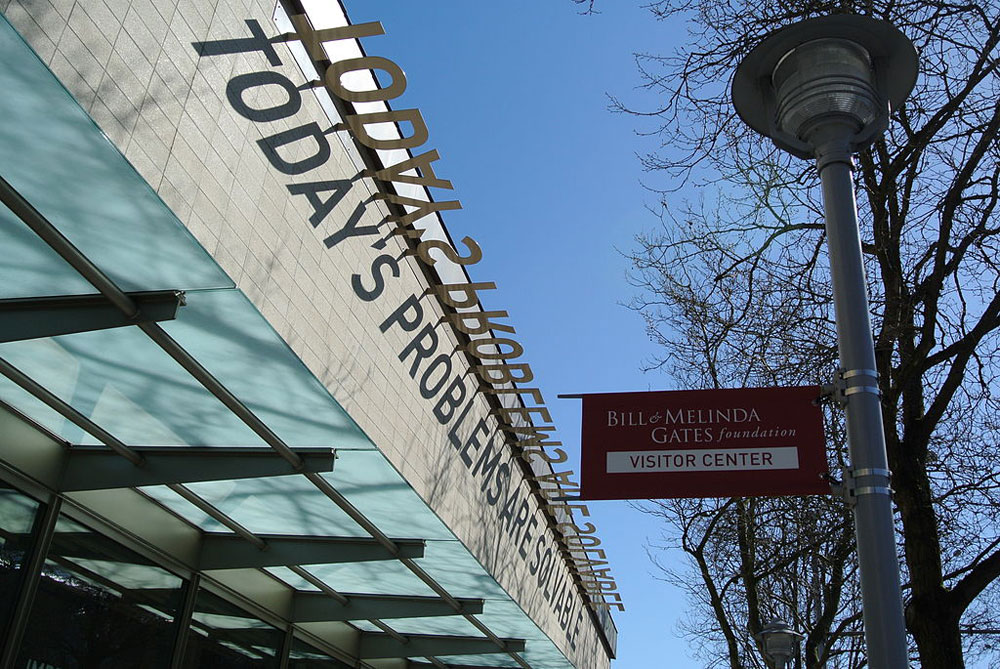
October 12, 2019; New York Times
Following his conviction as a sexual predator, Jeffrey Epstein used philanthropy to try to buy a ticket back to respectability. NPQ’s coverage of this story as it has developed has focused on how the allure of his wealth clouded the judgment of organizations that should have known better. As more and more details emerged, adding one esteemed university to another as willing recipients of a tainted donor’s largesse, NPQ came back to a question first raised by Komal Shah, a trustee of the San Francisco Museum of Modern Art: “How evil is too evil when it comes to donors?”
On Sunday, the New York Times shed light on Epstein’s connection to Bill Gates and his foundation, a relationship that changes the focus of the question from the recipient to the donor community. Using his connections to other wealthy and influential people, Epstein was able to forge a relationship with Gates. Despite Epstein’s past criminal conviction, Gates accepted invitations to gatherings at Epstein’s home. Those meetings were convened to create a mechanism through which Epstein’s ties to other wealthy people could be used to develop a new multibillion-dollar philanthropic initiative. According to the Times’ reporting:
Epstein pitched an idea for a separate charitable fund to JPMorgan officials…he envisioned a vast fund, seeded with the Gates Foundation’s money, that would focus on health projects around the world, according to five people involved in or briefed on the talks, including current and former Gates Foundation and JPMorgan employees. In addition to the Gates money, Mr. Epstein planned to round up donations from his wealthy friends and, hopefully, from JPMorgan’s richest clients.
Sign up for our free newsletters
Subscribe to NPQ's newsletters to have our top stories delivered directly to your inbox.
By signing up, you agree to our privacy policy and terms of use, and to receive messages from NPQ and our partners.
Over several years, Epstein’s ability to add significant resources to philanthropic ventures the Gates Foundation was developing was enough to overcome any qualms about Epstein’s character. While some of the Foundation’s staff were concerned that their reputation could be harmed if knowledge of an Epstein relationship became known, this did not stop the process. Even Epstein suggesting that he receive a commission for the funds he would raise was not enough to end the conversation.
The discussions ended without a new venture being created—but not because of values, morals, or principles. According to a Foundation staff member, “Over time, Gates and his team realized Epstein’s capabilities and ideas were not legitimate, and all contact with Epstein was discontinued.” The Gates Foundation realized that there was no wealth to be reaped to grow their philanthropic impact, and walked away, but Epstein accomplished his goal, finding a reputable, highly sought donor to use as cover.
Just the impression of a relationship with Gates was enough for Epstein to use as bait in his drive for respectability alongside billionaires Leon Black and Leslie Wexner. In 2014, a $2 million gift was made by the Gates Foundation to MIT’s Media Lab, another philanthropic relationship Epstein had nurtured. A representative of the Gates Foundation told the Associated Press on Monday that “the money given directly to the university in 2014 wasn’t dedicated to the program that Epstein was fundraising for, and Gates’ office wasn’t aware of any discussions between the lab and Epstein about the tech billionaire’s grant.” But the university thought differently; from their perspective, Epstein was valuable enough to merit breaking their rules and ignoring that he had been officially barred as a solicitor or donor.
NPQ, looking at why such large and prestigious organizations as Harvard and MIT had ignored who Epstein was, wondered if “the pressure to balance budgets was so great that it corrodes ethics and judgment.” Those pressures do not explain why wealthy, powerful philanthropists were willing to ally with Epstein to further a philanthropic agenda. In a month in which Melinda Gates announced a $1 billion commitment to increase funding for efforts to help close the gender equity gap, it is hard to understand the Gates’ blindness to what a connection, even a casual one, with Epstein conveyed. We hope that in the future philanthropists see the benefit of ensuring that their values supersede their personal ambitions.—Martin Levine













